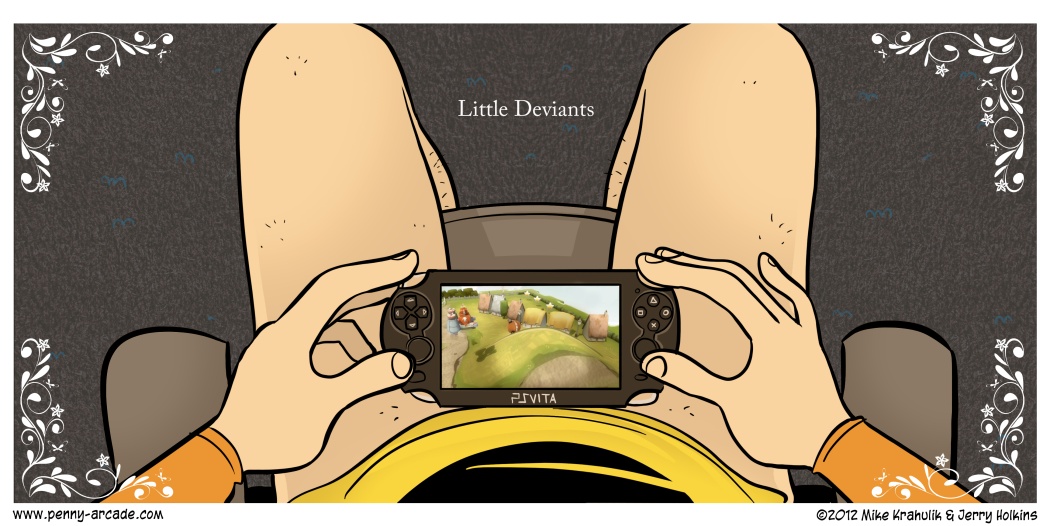Gabriel has told me that Little Deviants is very, very bad. He hasn't told me why, and only shivers at the mention of it, so I'm not saying you should invest this assessment with great import or something. He did, however, discover a novel input methodology. I have coined the term "Rear Stylus," and I am offering it for use royalty-free.
I was gone when it would have been relevant, but I've played through Syndicate. How is it (pretend that you don't know)? An earlier iteration of myself might have called the single player campaign "retarded."
In 2012, an era of diplomacy and grace, I might call it concussed. This is more robust, anyway: it describes a state of such profound head trauma that confusion and even unconsciousness are the result. In a time where Deus Ex: Human Revolution did not occupy some portion of our media consciousness, or that the original Syndicate had never existed, this new one would just be dumb. In a time where DE's sharp script and transhuman themes are still present and actively pulsing, it's almost unconscionable. Unlockable journal entries and the introduction itself reveal that clever writers were in the vicinity. What happened?
Until a game is released, it is many, many games. I've seen this happen with my own erect, greasy eyestalks. This is part of the reason Day One DLC isn't something I get up about; what we call "the game" was probably done a long time ago. I wonder at what point this Syndicate became "Syndicate," brand scion; the solo portion is pure fondant, it's all structure with a vague, nominal sweetness.
The campaign has a few visionary moments, times where its spartan environments seem elevated to the ideal of Homogenous Corporate Sterility as opposed to simply plain. There are overwhelming fights where your suite of "App" powers flow into one another, and you get a sense of the good game they might have made instead.
The multiplayer invests that loose jumble with a clean matrix of startling, platinum wire. Every weapon, every ability, and your character itself become research trees. Missions generate currencies. The weapons themselves are thoughtful and (generally) pragmatic in their construction, and communicate their weight and power. You'll be eaten alive if you don't play together. I loved it in the demo, and it only gets better.
Which of these games came first? They have no business being on the same physical platter; If I were to leave it out on the counter overnight, I expect that in the morning I would see two half-sized discs. Was the single player campaign created as the "ballast" for a Triple A retail release, or was this multiplayer the result of some strange alchemy performed on the existing assets?
(CW)TB out.

